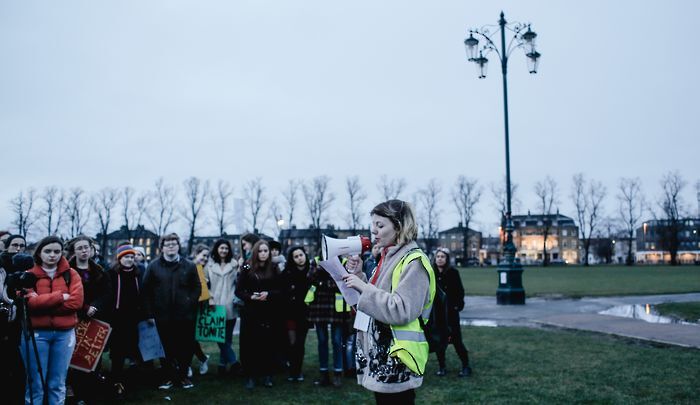Cambridge's Disciplinary Procedure
Report recommends major changes to Cambridge disciplinary procedure on sexual misconduct
The University’s Office for Student Conduct has recommended a shift to ‘balance of probabilities’ if it finds wide support among the student body

The Office of Student Conduct, Complaints and Appeals (OSCCA) has today released a series of proposals, which aim to reform the University’s disciplinary procedure so it is “clear and accessible” for students.
This has been a particular priority for student activist groups, who have been advocating a change to the University’s procedure for cases of sexual misconduct to rely on the ‘balance of probability’ as a standard of proof, rather than proof ‘beyond reasonable doubt’.
OSCCA has said if “the student body wants the University to use the balance of probability as the standard of proof when considering allegations of student misconduct” then it “should be accepted by the University community.” However, they noted that they felt it was “unclear” if this is “the view of the student body”.
In response, CUSU Women’s Officer Lola Olufemi told Varsity that if student opinion was unclear even after the “open letter signed by more than 800 students, ribbons tied to Senate House [and] a Senate House Discussion dominated by staff and students demanding the standard of proof be changed,” it would “become clear through the responses to [the] consultation”. She added that the consultation was an opportunity for students to “place pressure on the institution”.
CUSU Women’s Campaign (WomCam) has encouraged students to “flood the consultation on disciplinary procedure” with testimonials and thoughts on why the standard of proof must be changed.
Earlier this month, WomCam released an open letter, which called on the University to “no longer rely on a criminal standard of proof” in cases of sexual assault and domestic violence. Last week, the Women’s Campaign tied over 800 ribbons, representing the signatories of the letter, to the gates of Senate House prior to a discussion on the issue.
As the report highlights, the vast majority of universities use the balance of probabilities as the standard of proof in disciplinary procedures.
The report recommends that OSCCA could investigate alleged misconduct, as their staff already “have the relevant experience and already support the disciplinary investigation process”. Under this new reporting process, anyone would be able to report an alleged breach of rules to OSCCA who would then investigate the allegations.
Olufemi welcomed the change, commenting that it was “preferable to the current system and a step in the right direction”, as it makes the disciplinary procedures “less protracted” and lessens “strain on a single individual”. Allegations of alleged misconduct are currently investigated by the University Advocate, which the report regards as an “unmanageable workload”.
OSCCA has also recommended that the outcomes of cases are no longer published in the University Reporter, which is accessible to all University members.
Their proposals are endorsed by the Review Committee: However, there will be a further consultation on certain issues. If there is “broad support” from those consulted, revisions to the University’s Statutes and Ordinances will be drafted for endorsement by the Review Committee before seeking the approval of a Report for publication.
The report also recommends that the Discipline Committee, a five-person body which considers potential breaches of University Regulations, be reduced in size to three people and made to include a student representative in order to provide different perspectives.
Under the proposed reforms, a new post of ‘Student Discipline Officer’ would be created. The Student Discipline Officer would be able to impose limited penalties without the need for a hearing in cases of minor breaches of rules in cases “where rules have been breached but where no actual harm has been caused.”
The consultation process for students and staff to submit responses to the Review Committee related to the OSSCA report will be open until Friday 22nd June.
 News / Eight Cambridge researchers awarded €17m in ERC research grants27 December 2025
News / Eight Cambridge researchers awarded €17m in ERC research grants27 December 2025 News / Downing investigates ‘mysterious’ underground burial vault 29 December 2025
News / Downing investigates ‘mysterious’ underground burial vault 29 December 2025 Lifestyle / Ask Auntie Alice29 December 2025
Lifestyle / Ask Auntie Alice29 December 2025 Sport / Hard work, heartbreak and hope: international gymnast Maddie Marshall’s journey 29 December 2025
Sport / Hard work, heartbreak and hope: international gymnast Maddie Marshall’s journey 29 December 2025 Interviews / Meet Juan Michel, Cambridge’s multilingual musician29 December 2025
Interviews / Meet Juan Michel, Cambridge’s multilingual musician29 December 2025









